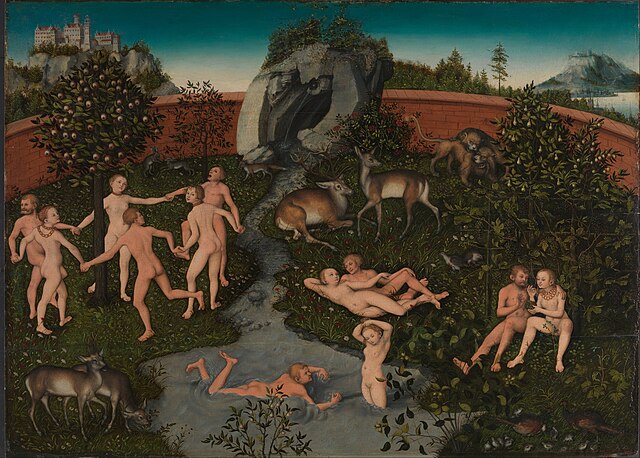A dystopia, also called a cacotopia or anti-utopia, is a community or society that is extremely bad or frightening. It is often treated as an antonym of utopia, a term that was coined by Sir Thomas More and figures as the title of his best known work, published in 1516, which created a blueprint for an ideal society with minimal crime, violence, and poverty. The relationship between utopia and dystopia is in actuality, not one simple opposition, as many utopian elements and components are found in dystopias as well, and vice versa.
Life in Kowloon Walled City has often inspired the dystopian identity in modern media works.
People Leaving the Cities, photo art by Zbigniew Libera, which imagines a dystopian future in which people have to leave dying metropolises
A utopia typically describes an imaginary community or society that possesses highly desirable or near-perfect qualities for its members. It was coined by Sir Thomas More for his 1516 book Utopia, which describes a fictional island society in the New World.
The Earthly Paradise – Garden of Eden, the left panel from Hieronymus Bosch's The Garden of Earthly Delights
The Golden Age by Lucas Cranach the Elder
A new heaven and new earth, Mortier's Bible, Phillip Medhurst Collection
New Harmony, Indiana, a Utopian attempt, depicted as proposed by Robert Owen






